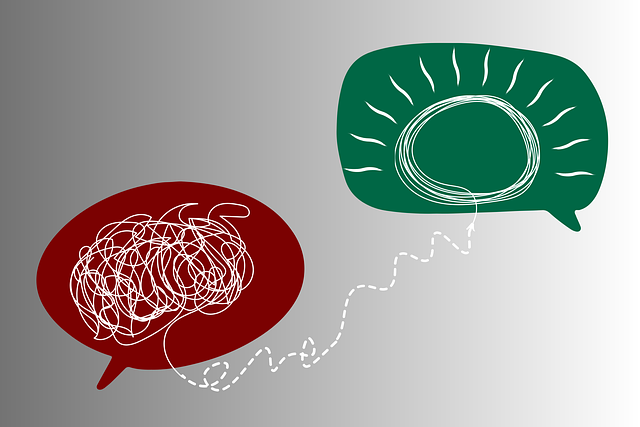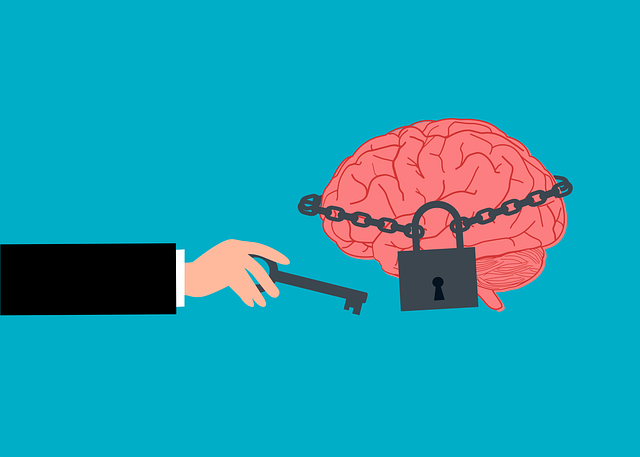Louisville's Crisis Intervention Teams (CITs) play a vital role in supporting mental health crises, combining law enforcement, paramedics, and mental health professionals with specialized training. These teams enhance public safety and contribute to the development of Mental Wellness Coaching Programs through collaborative efforts. Key to their effectiveness is accessible Louisville ADD-ADHD evaluations and therapy services, which provide tailored care and evidence-based practices for managing symptoms. Training programs focus on comprehensive curricula, including risk assessment and burnout prevention, integrating local resources and specialized approaches for diverse populations' unique needs, ultimately fostering resilient communities with improved health and welfare.
Crisis intervention team (CIT) training programs are essential in equipping professionals with the skills to handle mental health crises effectively. This article explores the vital role of CITs, emphasizing the importance of comprehensive training. We delve into key components such as understanding crisis situations, therapy approaches, and program design. Additionally, we highlight Louisville’s ADD-ADHD evaluations as a resource for enhanced care. By examining these aspects, we aim to provide insights that foster better mental health support through specialized training.
- Understanding Crisis Intervention Teams: A Crucial Role in Mental Health Support
- The Importance of Training: Equipping Professionals for Effective Response
- Louisville ADD-ADHD Evaluations: Unlocking Resources for Better Care
- Therapy Approaches for Crisis Situations: Strategies and Techniques
- Building a Strong Foundation: Program Design and Implementation Tips
Understanding Crisis Intervention Teams: A Crucial Role in Mental Health Support

In many communities, Crisis Intervention Teams (CITs) play a pivotal role in providing immediate and effective support during mental health crises. These specialized teams, often composed of law enforcement officers, paramedics, and mental health professionals, are trained to handle situations where individuals may be experiencing severe emotional distress or thinking about self-harm. In Louisville, for instance, ADD-ADHD evaluations and therapy services are integral to the broader mental health support ecosystem, with CITs serving as a crucial link between emergency responses and long-term care.
The design of Mental Health Education Programs specifically focuses on equipping team members with the knowledge and skills needed to de-escalate potentially dangerous situations while promoting mental wellness. These programs often involve extensive training in crisis management, communication techniques, and understanding various mental health conditions, including ADD/ADHD. By fostering effective collaboration between law enforcement and mental health professionals, CITs not only enhance public safety but also contribute to the development of Mental Wellness Coaching Programs that focus on mood management and supportive care for individuals facing mental health challenges.
The Importance of Training: Equipping Professionals for Effective Response

Crisis intervention team training programs are an essential pillar in promoting effective response to mental health crises. In Louisville, where ADD-ADHD evaluations and therapy services are readily available, professionals can gain invaluable skills through specialized training. This preparation equips them to handle various situations with empathy and efficiency, ensuring that individuals in need receive the appropriate support.
The training goes beyond mere knowledge transfer; it fosters cultural sensitivity in mental healthcare practice, a crucial aspect for understanding and addressing the unique needs of diverse populations. By incorporating emotional well-being promotion techniques and trauma support services, these programs empower professionals to make a tangible difference. Such initiatives are pivotal in building resilient communities where individuals can access timely interventions, leading to improved overall health and welfare.
Louisville ADD-ADHD Evaluations: Unlocking Resources for Better Care

In Louisville, ADD-ADHD evaluations play a pivotal role in unlocking valuable resources for enhanced care. These comprehensive assessments go beyond mere diagnosis by providing insights into an individual’s unique needs and strengths. By utilizing evidence-based practices, therapy sessions can be tailored to promote emotional well-being, build resilience, and implement effective communication strategies.
The process involves a multidisciplinary team who collaborate to ensure a holistic understanding of ADD-ADHD. This includes psychological evaluations, behavioral observations, and interviews with parents or caregivers. Such a multifaceted approach allows for personalized interventions that not only manage symptoms but also foster growth and development in individuals affected by ADD-ADHD.
Therapy Approaches for Crisis Situations: Strategies and Techniques

In crisis intervention settings, various therapeutic approaches are employed to help individuals navigate and overcome intense emotional states. One effective strategy is cognitive-behavioral therapy (CBT), which focuses on identifying and challenging negative thought patterns and behaviors contributing to crises. By teaching clients coping mechanisms and problem-solving skills, CBT empowers them to manage future situations more effectively. Additionally, mindfulness techniques have proven valuable in calming individuals during crises, promoting emotional awareness, and fostering a sense of grounding.
Louisville ADD-ADHD evaluations therapy often integrates these approaches to address underlying conditions that may exacerbate crisis situations. Mood management is a key component, where clients learn to recognize and regulate their emotions through structured strategies. Emotional healing processes involve exploring and processing traumatic experiences, helping individuals process and resolve difficult feelings. Self-care practices are also integral, encouraging clients to prioritize their well-being through relaxation techniques, stress management, and healthy lifestyle choices.
Building a Strong Foundation: Program Design and Implementation Tips

Building a robust crisis intervention team starts with well-designed program structure and implementation strategies. When crafting training programs for such teams, it’s essential to prioritize comprehensive curriculum coverage that equips participants with the necessary skills to handle crises effectively. Incorporate evidence-based practices and techniques tailored to address various mental health challenges, including Attention Deficit Disorder (ADD) and ADHD, as these conditions often require specialized approaches during crisis situations.
In Louisville, where access to quality ADD-ADHD evaluations and therapy is readily available, program designers can leverage local resources to enhance training. This includes inviting renowned mental health professionals to share their expertise in Risk Assessment for Mental Health Professionals, a critical aspect of crisis intervention. Moreover, addressing Burnout Prevention should be integral to the curriculum, ensuring team members can maintain resilience while managing high-pressure situations.
Crisis intervention team training programs, such as those offered through Louisville ADD-ADHD evaluations, are essential for equipping professionals with the skills needed to handle mental health crises effectively. By combining robust training with evidence-based therapy approaches, these programs ensure that teams are prepared to provide timely and compassionate support. Through strategic program design and implementation, we can build a stronger foundation for crisis intervention, ultimately enhancing care and improving outcomes for individuals in need.














